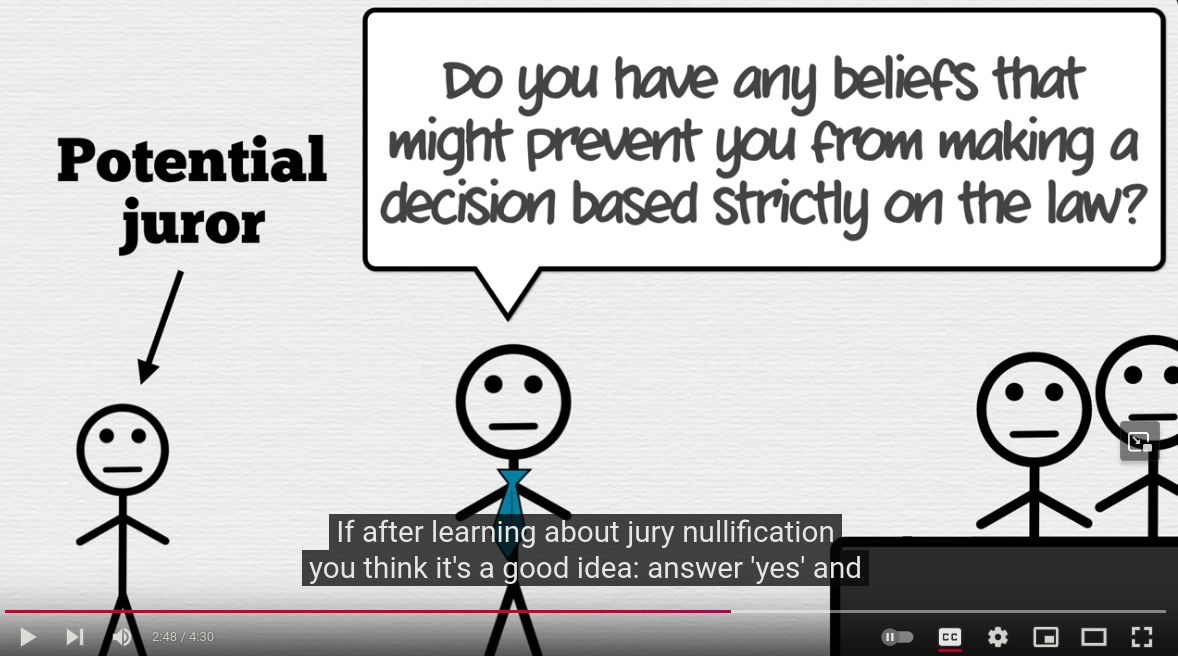this post was submitted on 09 Dec 2024
723 points (95.5% liked)
Technology
60787 readers
3776 users here now
This is a most excellent place for technology news and articles.
Our Rules
- Follow the lemmy.world rules.
- Only tech related content.
- Be excellent to each another!
- Mod approved content bots can post up to 10 articles per day.
- Threads asking for personal tech support may be deleted.
- Politics threads may be removed.
- No memes allowed as posts, OK to post as comments.
- Only approved bots from the list below, to ask if your bot can be added please contact us.
- Check for duplicates before posting, duplicates may be removed
Approved Bots
founded 2 years ago
MODERATORS
you are viewing a single comment's thread
view the rest of the comments
view the rest of the comments
I like that, but there is a major problem with it, and it's around 2:49 in the video:
Grey suggests that saying "No" with intent to nullify is lying, and therefore perjury. He is wrong. Where legislated law and constitutional law come into conflict (and they do in all cases of nullification), it is your duty to strictly follow constitutional law. You must judge the case as a layperson. You are constitutionally obligated to follow your own sense of rationality. That means if legislated law provides an undesirable outcome, you are obligated to "strictly follow [constitutional] law", and refuse to convict under a lower law.
I can honestly claim to have no beliefs that would prevent me from making a decision based strictly on the law. The 6th Amendment is part of the law, and the 6th amendment requires and empowers me (as a juror) to make whatever decision I determine is appropriate.
Earlier in the video he stated that the jurors cannot be punished for their decision, this applies if the outcome results in perjury.
We aren't talking about the decision. We are talking about voir dire. You certainly can be charged and convicted of perjury if you lie during voir dire.
But again: it is not a lie to remember that the 6th Amendment right to a trial by jury of peers (as opposed to professional jurists) is constitutional law. It supersedes any legislated law, or any directive provided by any court. I hold no beliefs that might prevent me from making a decision strictly in accordance with the law.
Wait, that isn’t just a term from “My Cousin Vinny”‽
My reply would be: “if the law is just, I will make a decision that serves justice”.
And they would respond "You are excused, with our thanks".
Don't get creative. The only correct answer is "no".
I had half a day to think about it when they were selecting jury for a DUI case. I’d rather speak my mind freely for the jurors they’ve already selected, who are present during the full selection process. Normally one might think context doesn’t matter but DUI laws can also apply to a bicycle, which is a perfect candidate for being nullified by the jury.
You can speak freely with the other jurors during deliberation.
Yeah but I also didn’t really want to be on the jury that much. And I didn’t get called up anyway.
Best way to get out of jury duty is to mention nullification.
My approach also plants the seed of reason in the jurors who have already been selected. They may ignore jury nullification, but an open discussion of whether or not just laws need to be enforced never hurts.